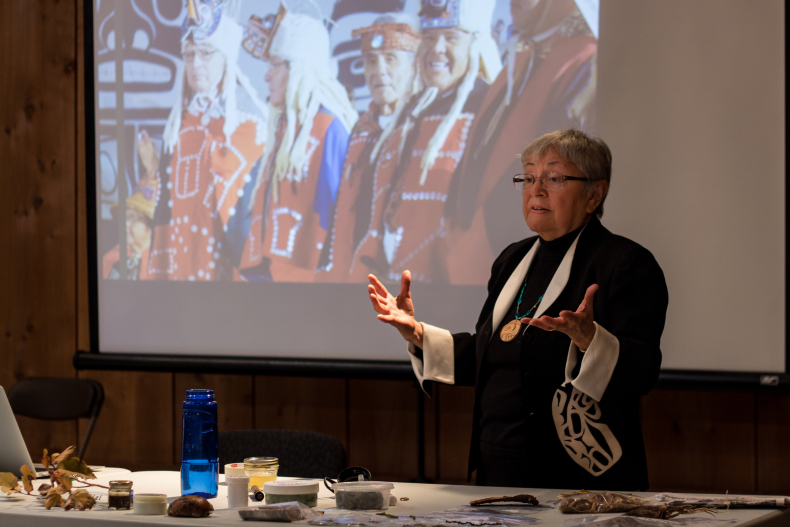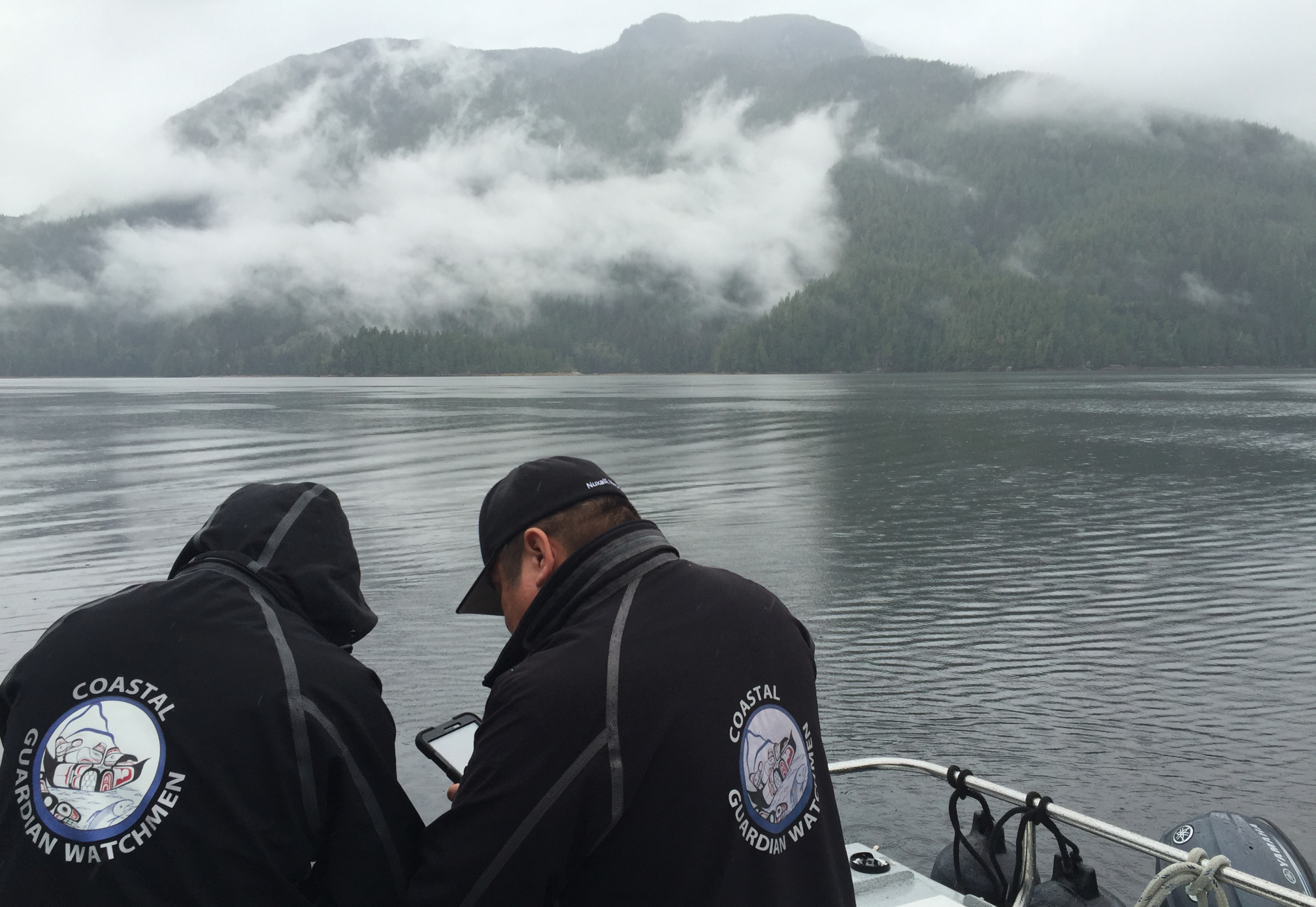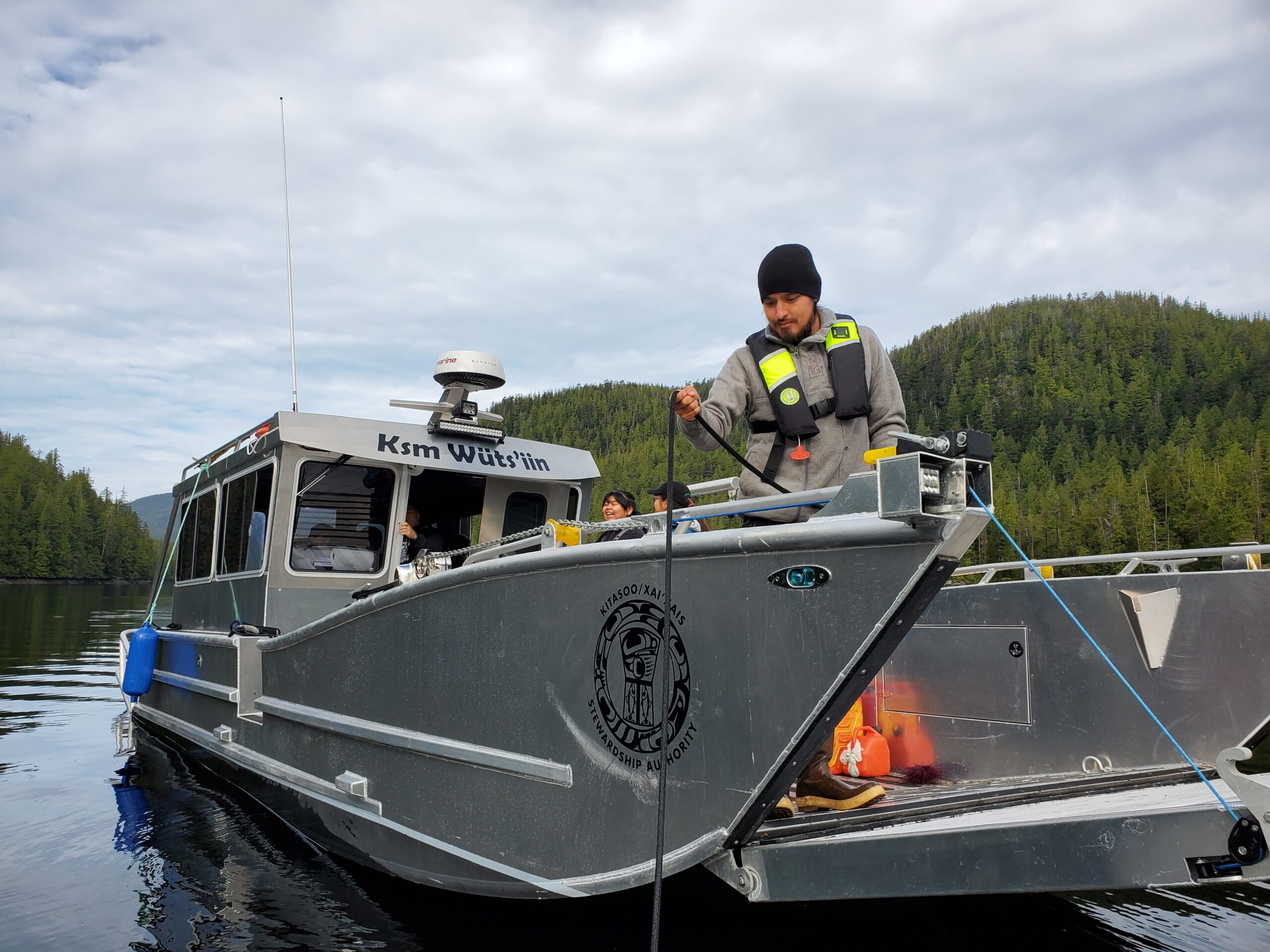In the longhouse at the Museum of Northern BC in Prince Rupert, graduates from the Stewardship Technicians Training Program (STTP) gathered together for an intensive four-day workshop. To be here, the students had traveled from communities all along the North and Central Coast and Haida Gwaii, and they came for the kind of invaluable training that could never truly be reflected on a spreadsheet or a piece of paper.
Led by respected educator, Hilistis Pauline Waterfall, a Heiltsuk Elder and knowledge keeper, the workshop focused on Indigenous laws, and how they guide stewardship efforts throughout the coast—a perfect complement to the more technical and applied stewardship skills they had acquired throughout their time with STTP.
Hilistis drew on the many examples of Indigenous law that are directly related to the work of Coastal Guardian Watchmen, including the Haíɫzaqv Nation Oceans Act, and welcomed students to share examples from their own communities. The students quickly identified several other instances where Nations are asserting their laws in the context of stewardship—the Nuxalk Sputc (eulachon) ceremony and handbook, Central Coast crab closures and joint management of the Kitasoo/Xai’xais Mussel Conservancy with the province, to name a few.
The workshop drew upon the knowledge and understanding of several experts, including representatives from the Gitxaala Fisheries and Marine program, who spoke about the Gitxaala Harvesters Handbook and their RELAW program funded by West Coast Environmental Law, and Tsimshian and Dene-Metis lawyer Christina Gray, who helped frame the conversation about Indigenous law through an activity involving a legal case review of a traditional story. The students also joined Metlakatla Elder Franny Nelson on a hike to learn about medicinal plants in the area, and their many uses, and to search for local culturally modified trees (CMTs).
All guest trainers were supported at the workshop by facilitators from CFN’s Coastal Stewardship Network and Vancouver Island University, who have partnered to run STTP. Since the program began, three separate cohorts and 52 students have graduated from the program, and each one of those students has gained invaluable knowledge from local community members and tangible skills to support their stewardship work—many of them now working as Coastal Guardian Watchmen, fisheries technicians, environmental monitors or in other stewardship roles.
“The workshop was created to reunite STTP students and to build on the skills and knowledge they acquired through the program,” says CFN training coordinator Elodie Button, who helped design the training along with Hilistis and others. She says the students chose their favoured training themes ahead of time, and clearly wanted to focus on Indigenous laws in the context of stewardship, along with team-building and communication skills. “It was the perfect extension of STTP’s varied themes,” adds Button, “and provided opportunities for continuous learning and relationship building, while deepening the students’ shared understanding of Indigenous laws as a group.”
When the intensive training was over, each student left with a renewed commitment to upholding Indigenous laws in their stewardship work on the coast. “For me, the best part was the openness from everyone, the respect shown and given, the laughter shared, and all the presentations,” one student remarked. “I learned a lot about how I think and feel about Indigenous law, about how much I know or want to know. I learned that it involves a lot, and that we have similar values and understandings across all Nations.”
(Image: Emilee Gilpin)


